
Hong Chen
Professor, Doctoral Supervisor at Tongji UniversityProfessor and Doctoral Supervisor. A recipient of the National Science Fund for Distinguished Young Scholars, she currently serves as the Director of the Intelligent Vehicle Research Institute at the Tongji University New Energy Vehicle Engineering Center, and formerly held the position of Director of the State Key Laboratory of Automotive Simulation and Control at Jilin University. Her primary research interests include advanced control theory and methods, vehicle control, and autonomous driving. With long-term dedication to the study of advanced optimal control, nonlinear control, and their applications in vehicle systems, her research achievements in predictive control and automotive control have been widely recognized and adopted by peers both in China and internationally.
She has received numerous awards, including the First Prize of the Jilin Province Natural Science Award, the First Prize of the China Automotive Industry Technology Invention Award, the Second Prize of the Natural Science Award from the Ministry of Education, the Special Government Allowance from the State Council, and the title of Top-Level Innovative Talent in Jilin Province.
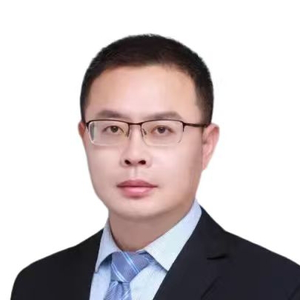
Xinde Li
Professor, Doctoral supervisor at Northeastern UniversityProfessor and Doctoral Supervisor at Northeastern University. He earned his Ph.D. from Huazhong University of Science and Technology, completed postdoctoral research at the National University of Singapore, and was a state-sponsored Visiting Scholar at the Georgia Institute of Technology, USA. He is an Academician of the Russian Academy of Natural Sciences, Chairman of the Academic Committee of a Provincial/Ministerial-Level Key Laboratory, Fellow of the Institution of Engineering and Technology (IET), Global Outstanding Robot Scientist, 2024 Science and Technology Leadership Figure, Vice Chairman of the World Association for Artificial Consciousness, and Council Member of the Chinese Association for Artificial Intelligence (CAAI). He also serves as Director or Deputy Director of multiple CAAI technical committees, including the Intelligent Robotics Committee.
Dedicated to addressing international scientific frontiers and national major demands, he has deeply engaged in the field of intelligent robotics. He pioneered the concepts of robot field and scene cognition, and was among the earliest to research natural language interactive navigation for robots, multi-granularity fusion theory, self-developing DNA-based sustainable continuous learning neural networks, and machine consciousness awakening. He led the development of the world’s first autonomous continuous jumping flapping-wing robot and an amphibious spherical robot, among other innovations.
He has presided over more than 50 projects, including Key Projects and Major Research Plans of the National Natural Science Foundation of China. He has published over 100 papers in IEEE Transactions and top-tier conferences, authored 4 books supported by national publishing funds, and compiled 1 Jiangsu Provincial Key Planning Textbook. He holds 44 authorized Chinese invention patents and 5 PCT patents (including U.S. patents). He has been invited over 40 times to serve as Conference Chair or Keynote/Plenary Speaker at renowned international and domestic conferences and organized events such as the 11th China Information Fusion Conference. His research outcomes have been successfully transferred and applied in enterprises like the 716th Research Institute of CSSC, generating significant economic benefits.
He has received more than 10 international, provincial/ministerial, military, and society awards. He serves as Editorial Board Member for top-tier international journals such as IEEE Transactions on Fuzzy Systems (TFS) and prestigious conferences including IROS and ICRA.
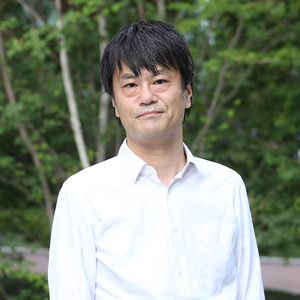
Tanaka Toshihisa
Professor, Assistant of President at Tokyo University of Agriculture and Technology (TUAT)Professor Toshihisa Tanaka received the B.E., M.E., and Ph.D. degrees from the Tokyo Institute of Technology in 1997, 2000, and 2002, respectively. From 2000 to 2002, he was a JSPS Research Fellow. From October 2002 to March 2004, he was a Research Scientist at RIKEN Brain Science Institute. In April 2004, he joined the Tokyo University of Agriculture and Technology (TUAT), where he is currently a Professor of Electrical Engineering and Computer Science. In April 2025, he was appointed Vice-Trustee and Assistant to the President of TUAT. He also heads the Research Unit of Informatics for Human-Animal Interaction at the One Welfare Research Institute of TUAT.
He was a Royal Society Visiting Fellow at the Communications and Signal Processing Group, Imperial College London, U.K., in 2005, and a Visiting Faculty Member in the Department of Electrical Engineering at the University of Hawaii at Manoa in 2011.
His research interests include signal processing and machine learning, with particular emphasis on brain and biomedical signal analysis, brain–computer interfaces, and human–animal interaction. He is a co-editor of Signal Processing Techniques for Knowledge Extraction and Information Fusion (Springer, 2008) and the leading co-editor of Signal Processing and Machine Learning for Brain–Machine Interfaces (IET, 2018).
Prof. Tanaka has served as an Associate Editor or Guest Editor for several international journals, including IEEE Access, Neurocomputing, IEICE Transactions on Fundamentals, Computational Intelligence and Neuroscience, IEEE Transactions on Neural Networks and Learning Systems, Applied Sciences, Advances in Data Science and Adaptive Analysis, and Neural Networks. He also served as Editor-in-Chief of Signals. He was the General Co-Chair of the Asia-Pacific Signal and Information Processing Association Annual Summit and Conference (APSIPA ASC) held in Tokyo in 2021.
He is currently a Senior Area Editor of IEEE Signal Processing Letters and Vice President for Member Relations and Development of APSIPA. He is serving as the General Chair of the 2028 IEEE International Conference on Acoustics, Speech, and Signal Processing (ICASSP 2028), to be held in Tokyo, Japan. He is a Senior Member of the IEEE and a member of IEICE, APSIPA, the Society for Neuroscience, and the Japan Epilepsy Society. He is also the Co-founder and CTO of Sigron, Inc.

Yixing Gao
Associate Professor, Researcher, Doctoral Supervisor at Jilin University- Keynote Report 3: Embodied Intelligence for Domestic and Elderly Care: Advances in Robotic Deformable Object Manipulation
- Corporate Summit Dialogue
Prof. Yixing Gao is an Associate Professor at the School of Artificial Intelligence, Jilin University, where she leads the Humanoid Robotics and Vision Laboratory. She is a recipient of the 10th Young Talents Support Program of the China Association for Science and Technology (CAST).
Prof. Gao was admitted to the Special Class for the Gifted Young at Xi’an Jiaotong University at the age of 15 and obtained her Ph.D. from Imperial College London. She later served as a Teaching Fellow in the School of Computer Science at the University of Birmingham, UK.
Her research interests include embodied intelligence, assistive robotics, computer vision, and human–robot interaction. Her work has been supported by several prestigious grants and awards, including the Young Scientists Fund of the National Natural Science Foundation of China (NSFC), the NSFC–Royal Society (UK) International Cooperation and Exchange Grant, and the Key R&D International Science and Technology Cooperation Project of the Jilin Provincial Science and Technology Development Program.
She has published over 30 high-quality papers in leading conferences and journals in robotics, computer vision and artificial intelligence. She is also the awardee of the IEEE ICRA 2024 New Generation Star Project.
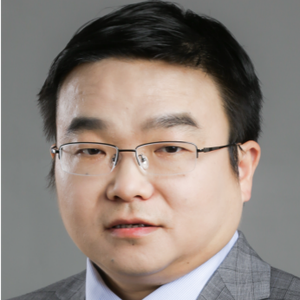
Zhenyu Lu
Professor, Doctoral Supervisor at Nanjing University of Information Science & TechnologyProfessor and Doctoral Supervisor, Dean of the Graduate School at Nanjing University of Information Science & Technology
He has long been engaged in research on pattern recognition and intelligent systems, with substantial expertise in the fundamental theories and algorithms of intelligent meteorology, autonomous driving, and brain-like computing, along with their practical applications.
To date, he has published nearly 40 high-quality academic papers in international journals such as IEEE Transactions on Cybernetics, IEEE Transactions on Geoscience and Remote Sensing, IEEE Transactions on Intelligent Transportation Systems, and IEEE/CAA Journal of Automatica Sinica (as first author or corresponding author). He has applied for over 20 invention patents, with 8 already granted.
He has led several national and provincial-level projects, including projects under the National Natural Science Foundation of China (Key Joint Fund Project, General Program, etc.) and a Major Joint Fund Project of the Zhejiang Provincial Natural Science Foundation, in addition to 4 industry-commissioned horizontal projects. He was awarded the 2022 Second Prize of Science and Technology by the Chinese Institute of Command and Control.
He serves as a project evaluation expert for the National Natural Science Foundation of China, Associate Editor of the journal Neurocomputing, Deputy Director of the Intelligent Automation Committee of the Chinese Association of Automation, Deputy Secretary-General of the Artificial Intelligence and Robotics Education Committee of the Chinese Association of Automation, Council Member of the Jiangsu Association of Systems Engineering, and Director of the Autonomous Unmanned Systems Committee of the Jiangsu Association of Automation. He is also a peer reviewer for renowned journals including IEEE TC, IEEE TCAS, IEEE TNNLS, and IEEE/CAA JAS.

Mike Russell
CEO, CTO of KUKA UKDr. Mike Russell is currently CEO and CTO of KUKA UK and also serves as a Non-Executive Director of the International Lean Six Sigma Institute (ILSSI). He graduated from the University of Cambridge, UK, and is a Chartered Engineer with 25 years of experience in the development and implementation of advanced manufacturing processes, including participation in several significant international technology transfer projects.
At KUKA, he is responsible for the development and delivery of strategic R&D programs and partnerships within the Advanced Welding Systems (AWS) business.
Mike has authored over 60 technical papers and publications and two patent filings to date. He has won a number of awards during his career, including the Lidstone Medal in 2008, the TWI Innovation Prize in 2012, the Welding Institute’s Larke-Lillicrap award in 2014, and the ILSSI Lean Six Sigma Project Excellence award in 2021.
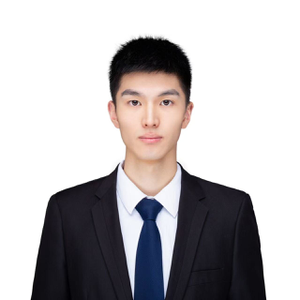
Yan Luo
Ph.D. at Shanghai Jiao Tong UniversityHe holds a Ph.D. from Shanghai Jiao Tong University, where he studied under the supervision of Academician Ding Han and Professor Xiong Zhenhua. He was selected for the Jiangsu Provincial Young Science and Technology Talent Support Program and has received honors including a National Award in the Internet+ Innovation and Entrepreneurship Competition and the National Scholarship.
He has participated in and led humanoid robot project research and development, encompassing whole-body stability balance control, embodied intelligence algorithm development, and multimodal large language model interaction. He has published multiple SCI-indexed papers, including several in Q1 Top journals, and holds invention patents. In 2023, he delivered an international academic presentation in Seattle, USA.
His previous roles include serving as Deputy Secretary of the First Party Branch of the Robotics Institute at Shanghai Jiao Tong University and as a Student Representative of the university. He currently holds positions such as Chief Liaison Officer for World-Renowned University Alumni at the Jiangsu Innovation and Entrepreneurship Alliance (苏创联) and Senior Expert Advisor in the Nanjing Industrial-Economic Advisory Expert Pool.
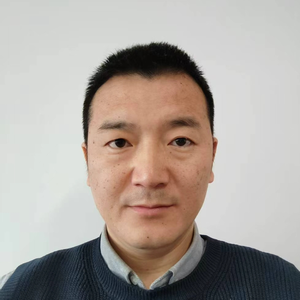
Gongjie Wang
CTO at Beijing Nokov Science & Technology Co.,Ltd.Chief Technology Officer of Beijing Duoliang Technology Co., Ltd., brings over a decade of research and development experience in motion capture technology. He specializes in the R&D and management of technologies and products related to motion capture, computer systems, embedded systems, and video surveillance IoT.
Through in-depth research on optical motion capture technology, he is dedicated to solving key challenges in mechanical automation control. He has advanced the application of optical motion capture technology in robotics and UAV fields, encompassing critical areas such as indoor positioning and tracking, humanoid robots, multi-agent collaborative control, robotic arm positioning, human-robot interaction, exoskeleton robots, bionic robots, as well as motion control and planning.
Furthermore, he actively promotes industry-wide scientific outreach to enhance the recognition and application frequency of optical motion capture technology. His efforts have facilitated technical exchanges and cooperation both domestically and internationally, driving technological progress across the industry.
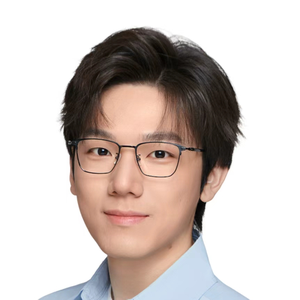
Zhongxiang Zhou
Research and Development Director of Zhejiang Humanoid Robot Innovation Center Co., Ltd.He has long been engaged in research on robotic operation skill learning. He has participated in four key projects, including the National Natural Science Foundation Key Project on Industrial Informatization Integration and key projects of the Ministry of Science and Technology. He led the development of a robotic assembly task demonstration programming system and an intelligent robotic operation system based on domestic computing chips. He contributed to the development of multiple wheeled mobile dual-arm industrial robots capable of autonomous commodity sorting and high-precision assembly tasks, which have been deployed in various scenarios such as automotive assembly, laboratory operations, and commercial services.
His research breakthroughs include environment fine-grained high-fidelity rapid reconstruction, high-precision object detection and pose estimation, cross-configuration human-robot motion mapping learning, vision-force integrated operation skill learning and development, and low-latency remote teleoperation systems. He has published over 20 papers in journals and conferences including IEEE TRO, IEEE RAL, ICRA, IROS, and CCC, and has applied for/been granted 8 invention patents.
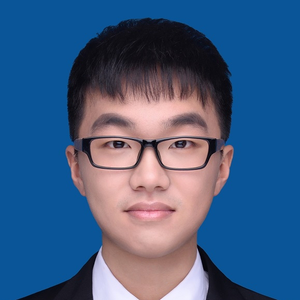
Zipeng Dai
Chief AI Researcher at Differential Robotics (Hangzhou) Technology Co., Ltd.Zipeng Dai currently serves as Chief AI Researcher at Differential Robotics (Hangzhou) Technology Co., Ltd. He earned both his bachelor’s and Ph.D. degrees from the School of Computer Science at Beijing Institute of Technology and was twice awarded the National Scholarship for Doctoral Students. He has published over a dozen papers in CCF-A venues such as IEEE Transactions on Mobile Computing (TMC), IEEE INFOCOM, and IEEE ICDE, and was the runner-up for the Best Paper Award at KDD 2021.

Xinyi Le
Cofounder、Professor of Zhenjue Tech、Shanghai Jiao Tong UniversityCofounder of Zhenjue Tech, Professor at Shanghai Jiao Tong University, recipient of the National Excellent Young Scientist Fund, specializes in the industrial application of large-scale models and visual algorithms. She earned her bachelor's degree from Tsinghua University's Department of Precision Instrumentation and her Ph.D. from The Chinese University of Hong Kong. With over 70 published academic papers and more than 3,000 citations, her machine vision inspection equipment has been showcased at the World Artificial Intelligence Conference and the China International Industry Fair. She has led over 10 national and provincial-level research projects and established extensive collaborations with companies including Inspur, Shanghai International Port Group, Baosteel, and ZTE. Honors include: National Key R&D Program Young Scientist, Shanghai Science and Technology 35 Under 35, Shanghai Youth Science & Technology “Rising Star” Talent, Shanghai Pujiang Talent, and Forbes China 30 Under 30.

Pei Dong
Vice President of JiYi Embodied Intelligence RoboticsDr. Pei Dong is currently Vice President at JiYi Embodied Intelligence Robotics. He received his PhD in Information Technology from the University of Sydney. He was Director of Vision Technology at UBTECH Robotics and Senior Algorithm Engineer at Tencent. Dr. Dong focuses on computer vision-related directions, including deep learning, image/video analysis, and multimodal models. He has published more than 20 research papers in international journals and conferences, e.g., IEEE-TIP, CVPR, ICCV and MICCAI. His contributions include leading the R&D and productization of CV algorithms for humanoid and service robots, as well as AI-powered microscopes.